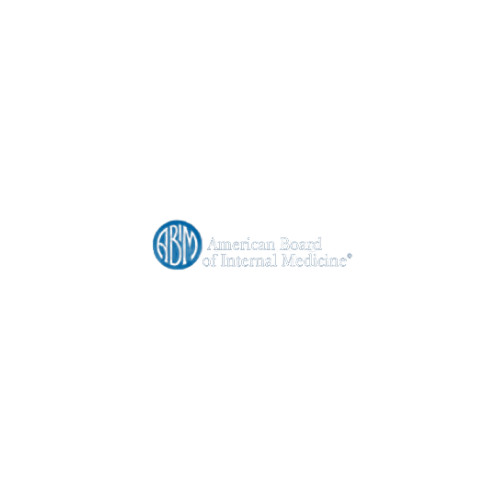How I Knew I Had Colorectal Cancer, AKA Colon Cancer
- Berry Johnson Health

- Sep 3, 2024
- 4 min read
Did you know, according to the American Medical Association, Colorectal cancer is the second leading cause of cancer death in the U.S. source
In the midst of bustling daily life, it's easy to overlook subtle body changes, especially when they concern our health.

Yet, it's often these changes that speak volumes, whispering hints of something amiss.
March, being cancer awareness month, reminds us to pay closer attention to these whispers, particularly when it comes to colorectal cancer – a condition that, despite its severity, can be confronted with early detection and awareness.
How I knew I had Colorectal Cancer?
What is Colorectal Cancer?
Colorectal cancer, often called colon cancer begins in the colon or rectum, parts of our digestive system that play a critical role in our body's ability to process food and extract nutrients.
This cancer has been dubbed as a silent adversary, it doesn't always make a grand entrance with symptoms.
This subtlety is why sharing personal experiences and knowledge becomes crucial.
A Story Not Uncommon: How I Knew I Had Colorectal Cancer, AKA Colon Cancer
This is the typical recounting of events for most patients.
"Looking back, the signs were there, but I mistook them for stress or minor stomach issues,"
Most colorectal cancer patients’ journey with colorectal cancer started much like anyone else's – with seemingly innocuous symptoms that were easy to dismiss.
These recounts mirror the experiences of many who eventually receive a colorectal cancer diagnosis.
Understanding Colonoscopy; Why age 45 is crucial for women can be life saving. Read our comprehensive article to to learn more.
Unexpected Changes in Bowel Habits
Most colorectal cancer patients noticed changes that persisted for weeks: constipation, then diarrhea, and an uncomfortable feeling of not being able to empty the bowel.
Another thing many patients say is, "It was annoying, but I thought it was just my diet or stress,"
Blood in the Stool
A particularly alarming sign is noticing blood in the stool.
This is the red flag that pushed many to visit the doctor,"
While it's a symptom many might shy away from discussing, it's crucial for early detection.
Unexplained Weight Loss and Fatigue
Without any changes in diet or exercise, some patients may experience significant weight loss.
Coupled with a constant sense of fatigue, these may begin to paint a clearer picture that something is seriously wrong.
Listening to Your Body: Key Symptoms of Colorectal Cancer
Colorectal cancer can manifest through various signs.
While experiences differ from person to person, here are key symptoms to be aware of:
Changes in bowel habits: Persistent diarrhea, constipation, or a change in stool consistency.
Rectal bleeding or blood in your stool: A warning sign that should never be ignored.
Persistent abdominal discomfort: Cramps, gas, or pain that doesn't go away.
A feeling that your bowel doesn't empty: An unsettling sensation that something is always left behind.
Weakness or fatigue: Feeling unusually tired without a clear reason.
Unexplained weight loss: Losing weight without changes to your diet or physical activity level.
March: A Month of Awareness and Action
Recognizing March as cancer awareness month serves as a poignant reminder of the importance of being in tune with our bodies and the signs they give us.
It's a time to spread knowledge, share personal stories, and encourage early screening and check-ups.
Taking the First Step: Screening and Prevention
Early detection of colorectal cancer significantly improves the chances of successful treatment.
Screening tests, such as colonoscopies, are powerful tools for identifying precancerous conditions before they develop into cancer.
If you're over 45 or have a family history of colorectal cancer, talking to your doctor about screening is a critical first step.
Conclusion: The Power of Awareness and Early Detection
The stories of many underscore the transformative power of awareness and the critical nature of early detection.
By paying attention to our bodies and not dismissing subtle signs, we stand a stronger chance against colorectal cancer.
This March, let's pledge to listen more closely to what our bodies tell us and encourage those around us to do the same.
Awareness, education, and timely action are our best weapons in the fight against colorectal cancer.
By sharing our stories and spreading knowledge, we can make a difference.
DISCLAIMER
This article was researched and edited by the editors at Web Wide. Web Wide is not a medical facility nor do they claim to be. The content of this article should not be taken as medical advice. Neither Web Wide nor Berry Johnson Health shall be held liable for any damages or harm done to anyone based on actions taken after reading this article. This article is for entertainment purposes only. Neither Web Wide LLC nor Berry Johnson Health has to update this article, even if someone points out an error. Sources are provided for any statistics or findings made in this article. Please seek professional medical advice before taking any action regarding your health, or schedule an official consultation with the professional Doctors at Berry Johnson Health.





Comments